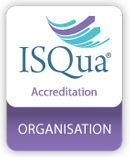News
View the archive
5 October 2010 Update
5th October 2010
For those of us who live in Canterbury, yesterday we had a one month reminder to the main event earthquake of 4th September with a 5.0 "house rattler" at 10.21 pm. Even with the house moving, we can be thankful, as there are many people and families affected who can not live in their homes, or have had to close their business. Our thoughts continue to be with them. In many ways HDANZ was very fortunate. Our office in Ferrymead was not affected (though some minor interior cracks are now showing) and it didn’t even lose power. There has been quite an interruption to workflows and rescheduling of audits, etc but we are mostly now back on track. Staff and our local auditors have had varying degrees of impact on their lives from minimal property damage to being significantly affected. One of our team lives in West Melton and though well prepared with a caravan has had about enough. Plus, our physiotherapy auditor in Kaiapoi has had to relocate his business premises but the house is ok. The main thing is that nobody was hurt but we do wish the earth would stop moving as the continued aftershocks (over 1500) do take their physical and emotional toll with ongoing fatigue being a big factor.
The following web-sites can help you keep up with the blow by blow:
http://www.geonet.org.nz/earthquake/quakes/recent_quakes.html
http://www.christchurchquakemap.co.nz/
PS – When the earthquake hit at 4.36 am a good number of the country's GPs were tucked up in the city's hotel rooms having completed the first day of their annual conference with the College of General Practitioners (RNZCGP). It is understood that hotel rooms were a mess and many were 12 storeys or so up. They evacuated out into the city streets in various stages of dress including at least one in his underwear.
Now that we have your attention – please read on for this update from Around the Sector
1. Health Select Committee finished hearing submissions in July 2010 about the office of the Auditor General’s Report— Effectiveness of arrangements to check the standard of services provided by rest homes (Dec 2009). HDANZ provided both a written and oral submission, and answered a number of queries during the oral presentation.
- To see all submissions go to; http://www.parliament.nz/en-NZ/PB/SC/Documents/Evidence/?Custom=00DBSCH_OTH_9740_1
2. Designated Auditing for the Safety Act: The latest update of the Ministry's DAA Handbook was released 3 August 2010. The DAA Handbook outlines acceptable standards for auditing practice based on international standards such as the following;
- includes third party accreditation requirements of DAAs
- strengthens minimum qualifications, skills and competencies required of auditors
- requires a fifty percent rotation of auditors at each certification audit
- outlines the role of individual members of the audit team
- provides more explicit information on the management of conflicts of interest
- confirms a code of conduct for auditors
- requires an annual declaration to be completed by DAAs including updating their
- auditor register that is held by the Ministry
- amends audit requirements to improve the focus of auditing on service delivery
3. HealthCERT also issued an update bulletin for DAAs (July 2010) that included some information that proved to be quite timely for us in Canterbury.
Emergency management: Is an alternative water source available?
In an emergency in which the main supplies fail, the provider must have an alternative supply of water available, consistent with Health and Disability Services Standard 1.4.7.4. An audit report must include evidence as to whether such a supply is available. To be consistent with civil defence advice, a provider should have at least three litres of drinking water available for each person in the service to last for three days. In addition, they should have at least one litre of water for each of the following:
- washing food and cooking for each meal
- washing dishes after a meal
- personal washing.
Regional, district and city councils are responsible for civil defence emergency management. For more information about storing water, refer providers to their local council. The relevant contacts are available on the Ministry of Civil Defence and Emergency Management website:
http://www.civildefence.govt.nz/memwebsite.nsf
- For HDSS criterion 1.4.7.4 also need to attend to emergency lighting, cooking and heating.
- From our recent earthquake experience a few additional tips include; to stress the importance of a well equipped and fully stocked civil defence kit, emergency food supplies as many services count on the food still being available in the pantry, an emergency get away kit - just in case you have to evacuate, and don't count on water remaining in the cylinders or holding tanks.
4. Allied Health certification: Physiotherapy services were affected significantly by ACC contractual changes introduced in November 2009. The bottom line is that a number have had to cease trading whereas others continue to maintain their certification and adapt and explore ways to provide services such as expanding off-sites for specific purposes such as schools and sports.
5. Home based support forms a vital part of the continuum of care for older people. Julie Haggie has been appointed Chief Executive Officer of the New Zealand Home Health Association (NZHHA). She replaces Jane Cumming, who left at the end of June. NZS8158:2003—Home and Community Support Sector Standards is being updated in 2011 to bring it into line with the Health and Disability standards and make it more outcome focused.
All the best with continuous quality improvement.




